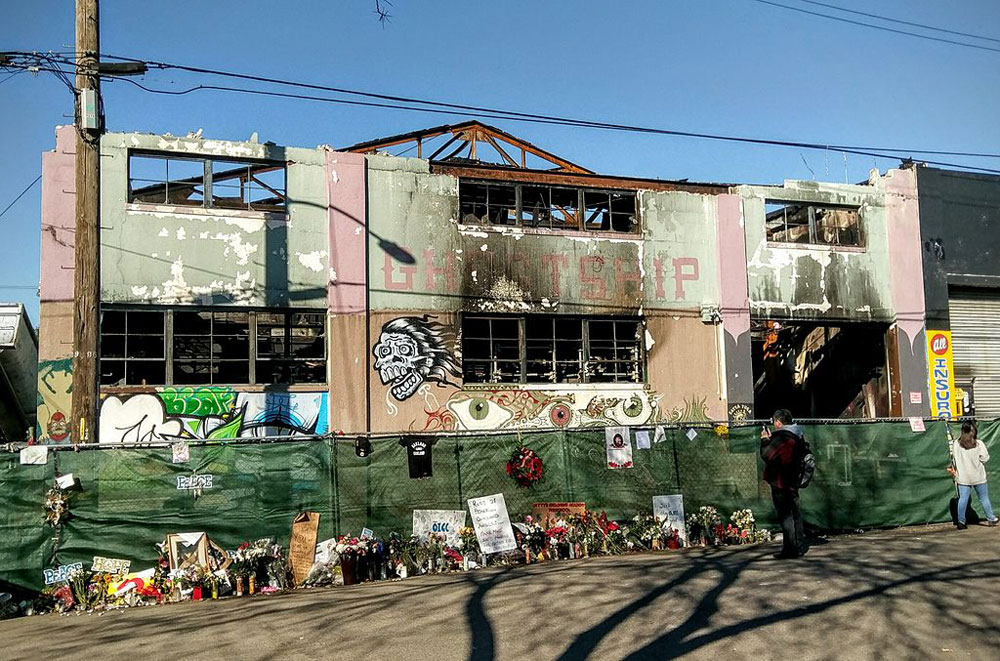
September 5, 2019; Los Angeles Times
Elsewhere in this newswire lineup, we reference the high costs of housing in the Bay area and that was certainly a central factor in the tragic 2016 fire at the Ghost Ship collective in Oakland, California. At the time, we reported that the incident led not just to the tragic loss of life, but the potential demise of a way of life that existed in DIY warehouse artist environments around the country.
The blaze that broke out in the artists’ jury-rigged live/work building during a concert at the venue killed 36, making it one of California’s deadliest fires. The combination of illegal construction and electrical work married to the artists’ work product, pianos, and assorted furnishings made the building a death trap. One of two exits had also been closed during the concert, which had attracted a crowd of 100 or so. The cause of the fire, however, has not been determined.
The incident caused a furor over the lack of facilities for artists in an area prized for its cultural vibrancy and created some government and philanthropic momentum for trying to address the problem.
The tragedy also highlighted stresses in the Bay Area’s out-of-control rental market, where tenants often complain they are at the mercy of landlords charging astronomical prices while refusing to make basic improvements to their properties. And it pointed up the failings of Oakland city officials to monitor properties like the Ghost Ship.
Sign up for our free newsletters
Subscribe to NPQ's newsletters to have our top stories delivered directly to your inbox.
By signing up, you agree to our privacy policy and terms of use, and to receive messages from NPQ and our partners.
Public records released after the fire showed the warehouse had been subject to at least 10 code enforcement complaints and that city officials had visited the building numerous times but failed to go inside or move to shut it down. Almena also testified that Oakland police and fire officials knew people were living inside the warehouse.
The building was reportedly operated as a collective—artists paid between $300 and $1400 to rent space in the building—but it had a property manager and a creative director, and these two men were brought to trial, charged with 36 counts of manslaughter. But yesterday, neither Max Harris, 29, nor Derick Almena, 49, were found guilty.
This trial started in April and finally ended yesterday. Both Almena and Harris reached a plea agreement with prosecutors last year when they were originally brought to trial, only to have the agreement breached when relatives protested that the sentences, nine and six years respectively, were insufficient. While Harris was acquitted, there was a hung jury in Almena’s case, and he may yet be retried in another chapter of a long and tortuous process.
Tyler Smith, one of the attorneys representing Harris, told reporters Thursday that the city’s housing crisis was at least partially at fault for what has become a tragic unhealed wound in the city’s artist community.
“None of this ever would have happened in the first place if the income inequality, the injustice…and the housing crisis, wasn’t permitted to get as bad as it has gotten in the Bay Area, and in Oakland, in the last few years,” he said. “These artists were living in this warehouse because…they were going to be living on the street otherwise.”—Ruth McCambridge













